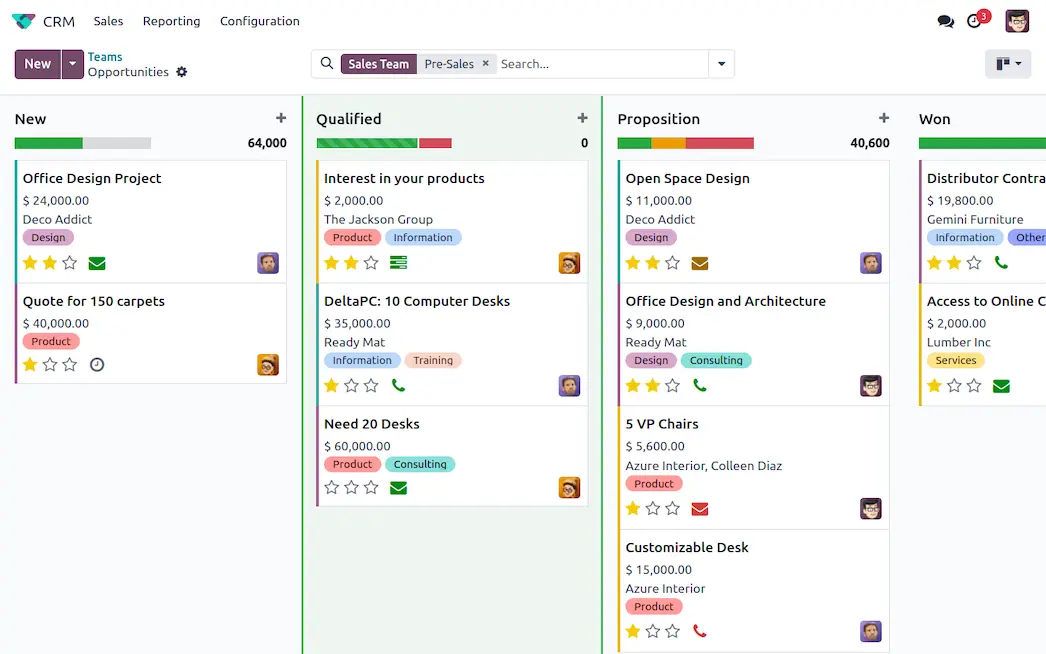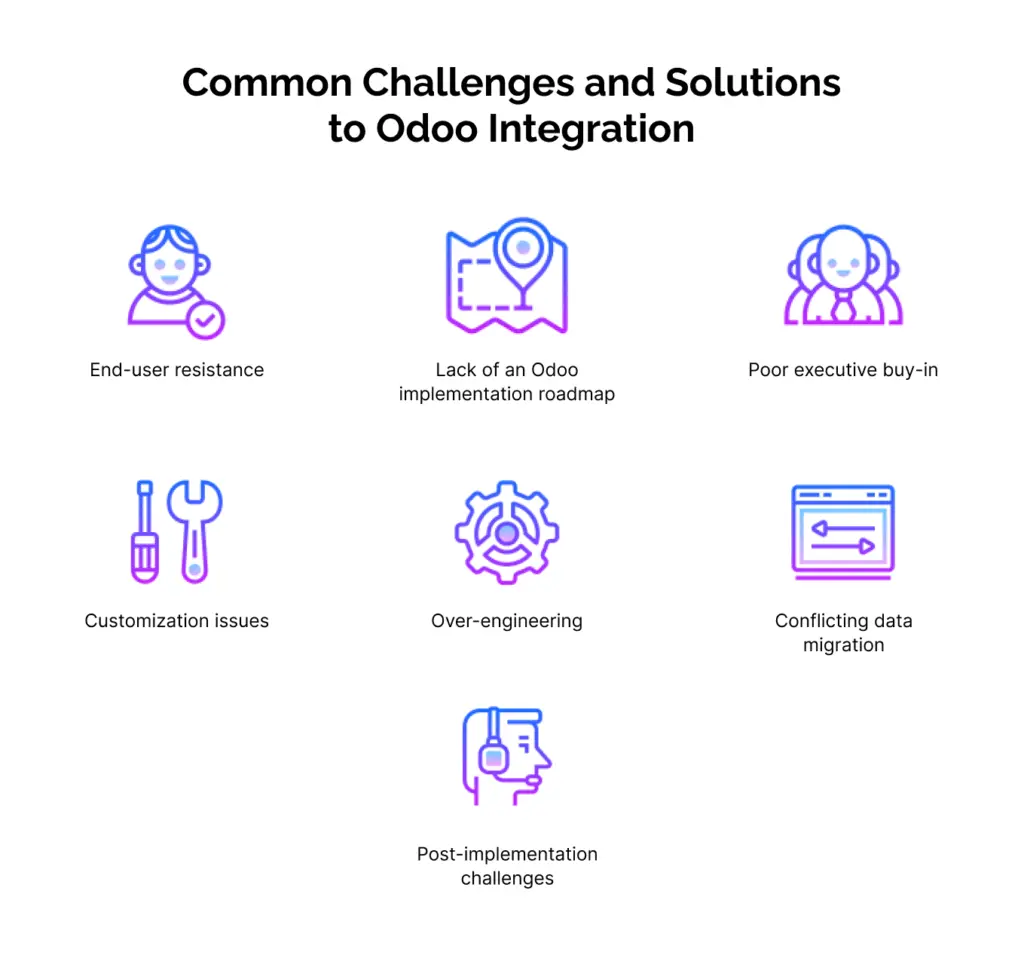In today's fast-paced business landscape, Enterprise Resource Planning (ERP) systems are no longer just helpful tools; they are the lifeblood that fuels company growth and underpins strategic decisions. Among these, Odoo stands out as a versatile and integrated solution, offering a broad spectrum of applications that cover every facet of operational and administrative processes. However, the journey of implementing Odoo, like any significant technological shift, is not without its challenges. It demands clear vision, meticulous planning, and strategic execution to ensure maximum returns on investment.
Odoo: More Than Just an ERP System
Odoo isn't merely software; it's a comprehensive ecosystem of open-source solutions designed to empower businesses. It seamlessly integrates diverse functions such as Customer Relationship Management (CRM), e-commerce, accounting, manufacturing, inventory management, and project management, all within a unified and cohesive environment. What truly sets Odoo apart is its remarkable adaptability and customizability, making it an ideal choice for businesses of all sizes and industries. Its core importance lies in its ability to consolidate disparate business operations into a single fabric, leading to a qualitative leap in operational efficiency, a tangible reduction in costs, and a radical improvement in decision-making quality.

Odoo Implementation Challenges: Turning Obstacles into Opportunities
Despite Odoo's numerous advantages, its implementation path can encounter several hurdles. Here, we explore the most prominent challenges and offer practical solutions to transform them into stepping stones towards success:
1. Accurate Requirements Analysis: The Solid Foundation of Every Project
The Challenge: Projects frequently falter or fail due to insufficient initial requirements analysis or a lack of precise planning. This deficiency can result in a system that doesn't meet the true business needs, or necessitates costly and time-consuming modifications in later project stages.
The Solution: It's crucial to dedicate ample time and intensive effort during the early project phases to conduct a thorough requirements analysis. This involves a comprehensive understanding of current business processes, precise identification of weaknesses, and clear articulation of the desired goals for Odoo implementation. Engaging all relevant departments at this stage is essential to ensure the collection of comprehensive and accurate requirements. Consulting specialized Odoo experts during this phase can be a decisive factor in identifying best practices and avoiding common pitfalls that might hinder progress.

2. Customization and Configuration: The Art of Balancing Flexibility and Efficiency
The Challenge: While Odoo offers significant flexibility, excessive and complex customizations can lead to inflated costs, delayed timelines, and considerable difficulty with future updates. Some companies might be tempted to tailor Odoo to perfectly match every existing process, even if those processes are inherently inefficient.
The Solution: The ultimate goal should be to adapt the company's business processes to align as closely as possible with Odoo's standard functionalities. Customization should be an exception, not the rule, and only pursued when requirements are truly unique and cannot be met through standard configuration. It's always preferable to utilize existing modules or develop new ones in a way that ensures easy updates and maintenance. Collaborating with a certified Odoo partner guarantees that customizations are implemented efficiently, sustainably, and in accordance with industry best practices.

3. Data Migration: A Secure Bridge to the Digital Future
The Challenge: The process of migrating data from legacy systems to Odoo is one of the most complex and sensitive phases, often prone to errors. Companies might face challenges related to data quality, inconsistent formats, or even data loss during the transfer process.
The Solution: This challenge necessitates a detailed and comprehensive data migration plan. This plan should include precise steps for data cleansing, standardization of formats, and repeated testing of the migration process in a test environment before actual implementation. Leveraging Odoo's available data migration tools, or developing custom scripts to handle more complex datasets, can be highly beneficial. Ensuring data accuracy and integrity is the cornerstone of the entire system's success.
4. User Training and Change Resistance: Building a Culture of Adoption
The Challenge: Employees may struggle to adapt to a new system, and resistance to change can emerge due to a lack of understanding of the system's true benefits or fear of the unknown. Insufficient training can lead to a decline in productivity and inefficient system usage, undermining desired objectives.
The Solution: Providing comprehensive and continuous training programs for all relevant users is paramount. These programs should focus on the practical application of Odoo in their daily tasks, highlighting the direct benefits the system will bring to them and the company as a whole. It's also advisable to establish an internal support team readily available to answer user queries and provide immediate assistance. Effective and transparent communication about project goals and anticipated benefits can significantly reduce resistance to change and contribute to fostering a positive adoption culture.

5. Post-Implementation Support: Ensuring Continuity and Continuous Improvement
The Challenge: After Odoo implementation is complete, companies require ongoing support to resolve any emerging issues, make necessary adjustments, or add new functionalities. The absence of adequate support can negatively impact operational continuity and limit the company's ability to fully leverage the system.
The Solution: Engaging a reliable Odoo partner to provide post-implementation support and maintenance is a vital step. The support contract should include a clear Service Level Agreement (SLA) that defines response and resolution times for issues. Furthermore, it's advisable to consider building a small internal team with sufficient knowledge to handle minor issues and routine adjustments, ensuring greater independence and flexibility in addressing daily needs.
Conclusion: Odoo as a Partner for Sustainable Growth
Odoo implementation is not merely a technical project; it's a strategic investment that can propel businesses to unprecedented levels of efficiency and digital transformation. Through meticulous planning, proactive handling of potential challenges, and continuous training and support, companies can ensure a successful Odoo implementation and fully harness its immense potential. Partnering with certified Odoo experts, such as the MZG team, provides the deep expertise and necessary support to overcome these challenges, transforming them into genuine opportunities for achieving ambitious business goals and sustainable growth.